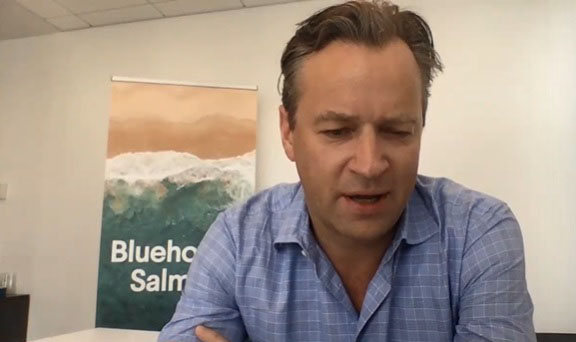“The biomass increase was 300 tonnes, the same as in the previous period (October). It has been negatively affected by sexual maturation, and we expect downgrades in the next two months,” said CEO Johan E. Andreassen during a video conference in connection with the monthly operating update for Atlantic Sapphire.
“We have a standing biomass of 2.3 million kilos. The old batch will be harvested over the next two months,” he added.
Maturity
When asked why the company has maturity issues, Andreassen explained:
“There are at least 20 reasons that give maturity: High temperatures, suboptimal production conditions due to construction work on the site, age. We have some fish that are 800-900 days old and it gives increased maturity. It’s unfortunate, but this is a topic related to the first releases. It is not something that will persist,” he promised.
The Florida-based aquaculture company received an average sales price of $10.1 in November.
“We deliver to around 2,000 outlets across America,” said CFO Karl Øystein Øyehaug.
He added that groundwork and plumbing are the focus areas now on the site and production facility, which is an hour’s drive from Miami.
Øyehaug said that they expect the investigation into the fire at the pilot plant in Denmark to be concluded in January.
Rapid growth
Andreassen said that he is looking forward to good growth on the new generation of fish swimming in the tanks.
“This fish is by far the fastest fish we have seen growing in the company so far. We will slaughter it in Q3. We are very satisfied with the growth – and the mortality rate is extremely low. I expect greater biomass growth in December than in November,” he said.
The company guides $225 million capex (investments) for its second construction phase in the United States. According to Øyehaug, they will continue to finance capex with cash and debt.
“We are in a strong spot market now, for commodity prices for salmon, and we expect this to continue for a couple of months,” Andreassen said. “Furthermore, we plan for an even culling, as we want to make sure that customers do not run out of fish.”

